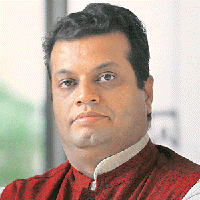A worried fraternity says young doctors are dying because of long working hours, and improper gear. The country has lost more than 450 healthcare workers to COVID-19 since the outbreak of the virus earlier this year, but the death of young doctors lately has come as a shock to the medical fraternity. Several medical professionals have attributed the rising casualties among young medics to long working hours, mostly without proper protective gear, and the overall poor state of the healthcare system in India. Here are some reasons why:
‘We’re in war against COVID without training’
Doctors urge the young doctors on the frontline to rest and follow a nutritious diet to maintain a strong immunity.
Dr. Pratiksha Waldekar, 32, a pathologist, was seven months pregnant and was working at a private hospital dedicated COVID in Amravati (the second largest city in the Vidarbha region)
She contracted the virus and delivered a still born child then her condition deteriorated and she died on September 20.
Dr. Prashant Jagtap, 26, who worked at a private, non-COVID hospital in Amravati, contracted the virus a month ago and died on August 4, a day before his wife delivered a baby boy. He was the sole breadwinner.
Dr. Ketaki Paranjape, 33, an anaesthesiologist at a private medical college and alumnus of Grant Medical College, Nagpur, lost her battle against COVDI-19 on September 15.
Greater exposure leads to more young doctors dying
They are among the young experts, like anaesthetists, surgeons, paediatricians, gynaecologists, aged between 25 years and 45 years, who have died fighting COVID-19 nationwide up until September 28.
Dr. Hriday Chauhan, a paediatrician from Azamgarh, Uttar Pradesh, in a social media post shared, “In the past couple of weeks, we have come across cases of young experts dying of COVID-19… As per our data, Maharashtra was initially reporting the most deaths of health care workers, but now, the number of deaths of young professionals is on the rise in Kerala, Karnataka and Tamil Nadu and West Bengal.”
“The young doctors are coming in direct contact with COVID-19 patients almost daily, which results in virus load… Anaesthetists and surgeons are working with emergency patients and in the process of saving lives, they overlook their own safety,” explained Dr. Chauhan.
A lack of protective gear
An analysis by Amnesty International on September 22, 2020 revealed that over 7,000 healthcare workers, mostly doctors, worldwide have died of COVID-19. The causes for these deaths are a) surge in COVID-19 cases and b) a dire shortage worldwide of protective gear, such as N95 masks, gowns, gloves and PPE kits.
The Indian Medical Association stated that 382 doctors had died of COVID-19 in the country up until September 16. However, this figure is likely to be higher. In fact, the Centre for Disease Dynamics, Economics and Policy in Washington D.C. has said that India’s system of recording death is weak and that there is a possibility that many more healthcare workers have died.
Poor health infrastructure
The primary reason is India spends only 3.6 per cent of its GDP on healthcare, which leads to poor health infrastructure, shortage of doctors, healthcare workers and medical equipment. It is estimated that doctors suffer four times the mortality of ordinary citizens, because they are constantly in contact with COVID-19 patients.
Dr. Wiqar Shaikh, senior allergy and asthma specialist, said the deaths have increased among young professionals because more of them have been working on the frontline as the senior doctors have been advised to stay back. “The young doctors come in contact with COVID-19 patients, and with no standardised PPE kits or face mask their protection has become a serious concern,” Dr. Shaikh said.
Initially, mostly senior doctors were dying of COVID-19, following which those with high-risk profile were advised to stay away from active practice, which led the younger doctors to the frontline, said Dr. Subhash Hira, professor of Global Health at the University of Washington-Seattle, U.S. and health adviser to several UN, Indian and African health agencies.
2.5 times more vulnerable
Dr. Hira said, “The Indian health workforce is 2.5 times more vulnerable to COVID-19-related deaths compared with the general population’s COVID-19 death rate of 53/million population. The likely problems lie in the weaknesses in its health systems that include the following: physical distancing between infected patient and treating doctor is generally <1 foot due to professional needs [when ideal distancing for COVID-19 prevention is recommended to be > 6 feet), delayed provision of appropriate, well-fitting and adequate personal protective equipment (PPE).”
A lack of research
“The lack of scientific and operations research has made it difficult for policy implementers to improve performance and efficiency of systems, and improve work safety of doctors,” Dr. Hira added.
Dr. Ketan Vagholkar, professor of surgery at DY Patil Medical College said, “Adequate sleep of at least seven hours, good nutrition fortified with vitamins and regular exercise, help in maintaining a strong immunity. However, prolonged working hours to treat an increasing number of patients has led to a decreased rest period and increased stress, which has eventually compromised their immunity. As a result, even younger healthcare professionals are getting infected.”
Not trained enough
Dr. Asit Khanna, a well-known senior cardiologist from Ghaziabad, UP, said, “We must understand that we are in a war against COVID, but unfortunately, unlike our armed forces, who are well trained and well equipped, to fight our enemies, the healthcare workers have been left in the lurch with no training or safety gears, and worst, no specialised equipment to fight the virus. We have no standardised PPE kits and safety gears, a couple of weeks ago, even though they were in short supply,” said Dr. Khanna.
Dr. Khanna has said, “We are in a situation, where the numbers are increasing with every passing day and we, the front line warriors, once infected, have no bed in any hospital, reserved for us. I have come across numerous cases, where a frontline warrior had to be taken to three to four hospitals and before a bed could be managed, it would be too late. Our young front line warriors are getting affected due to virus load, with every day exposure to the COVID-19 patients in ICU and wards, treating the sick and bad patients, our own foot soldiers have become sick now and the government has not only reduced the quarantine period, but have now almost brought it down to two days leave and some places due to staff shortage, it has become long working hours.” he concluded.




0 Comments